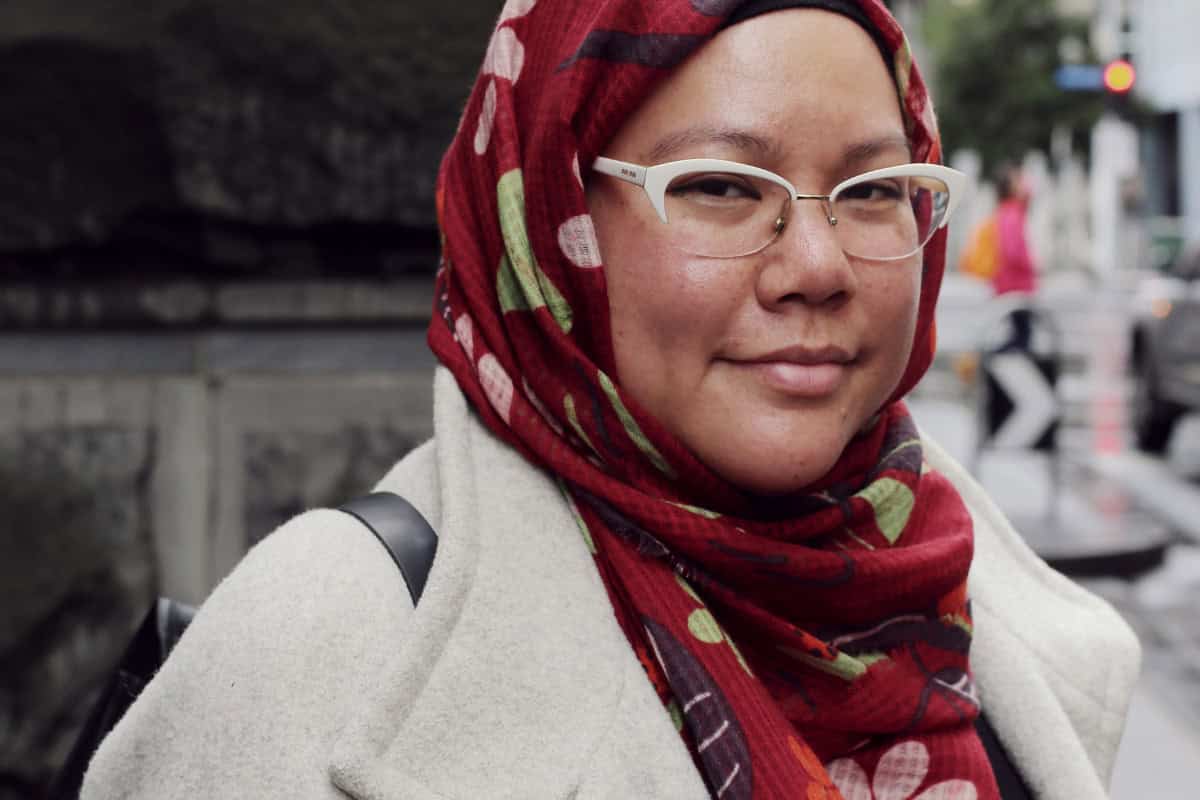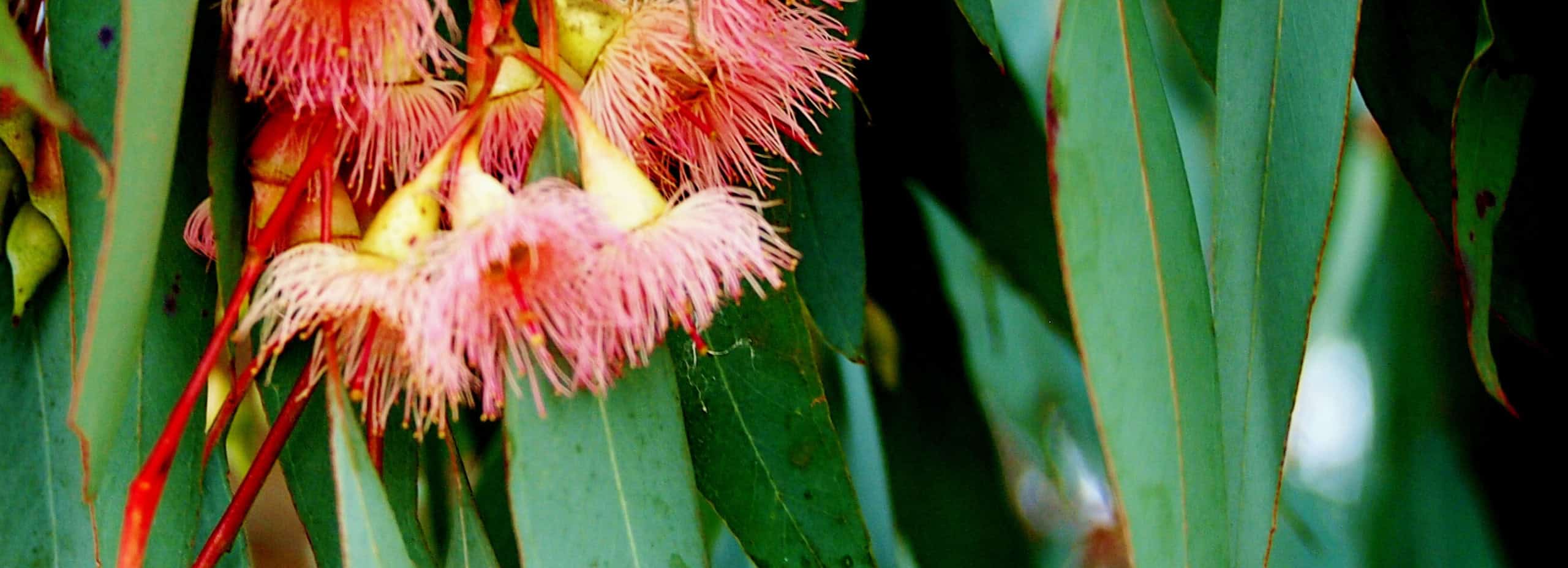
Officer of the Order of Australia recipients
Dr Lindy Lee AO FAHA
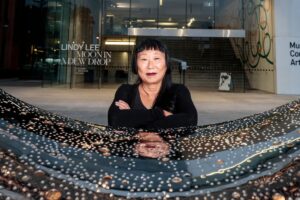
One of Australia’s most prominent and celebrated artists, Dr Lindy Lee is a painter and sculptor based in Arakwal Country in the Northern Rivers of New South Wales and in Turrubul Country in Brisbane, Queensland. Lee’s creative practice draws on her Chinese-Australian heritage and integrates Daoism and Chan Buddhism into explorations of human interconnections with nature and the cosmos. Using diverse materials including steel, bronze, paper, wax, ink, oil, photography and stone, Lee’s work ranges across multiple forms.
Lee’s sculptures stand in prominent public spaces such as Secret World of a Starlight Ember on the forecourt of the Museum of Contemporary Art in Sydney’s Circular Quay, The Life of Stars on North Terrace at the Art Gallery of South Australia and The Garden of Cloud and Stone in Sydney’s Chinatown.
The National Gallery of Australia commissioned Lee’s 13 tonne sculpture Ouroboros for its 40th birthday celebration and Star Entertainment group purchased Being Swallowed by the Milky Way for the redevelopment of Queens Wharf in Brisbane. Her paintings and installations have been exhibited in dozens of galleries nationally and internationally, including dozens of solo exhibitions in leading galleries in Australia and Asia. The Museum of Contemporary Art in Sydney held a major retrospective titled ‘Lindy Lee: Moon in a Dew Drop’ curated by then MCA Director, Elizabeth Ann Macgregor OBE, from October 2020 to February 2021 that toured Australia through 2022.
Born in Brisbane in 1954, Lee trained at Kelvin Grove Teachers College in Brisbane, the Chelsea School of Art, London, the Sydney College of the Arts and graduated with a PhD from UNSW. Lecturing for over two decades at the Sydney College of the Arts, Lee has also been active in supporting the arts in Australia through service to numerous organisations including serving as a trustee to the Art Gallery of New South Wales, founding member of Gallery 4A in Sydney’s Chinatown, board member of Artspace and Australian Centre of Photography and deputy chair of the Visual Arts and Craft Fund of the Australia Council.
Learn more about Dr Lindy Lee in our artist spotlight.
Dr Richard Mills AO FAHA
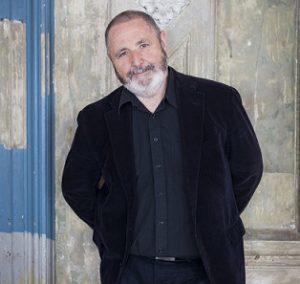 Richard Mills is a composer, orchestral and operatic conductor who has made significant contributions to music in every state of Australia, as a performer, conductor, artistic advisor, and director. Commencing his professional life as a percussionist in the Tasmanian and then Queensland Symphony Orchestras, Richard Mills became involved in teaching composition at Queensland universities, before beginning a career as an artistic director from the early 1990s.
Richard Mills is a composer, orchestral and operatic conductor who has made significant contributions to music in every state of Australia, as a performer, conductor, artistic advisor, and director. Commencing his professional life as a percussionist in the Tasmanian and then Queensland Symphony Orchestras, Richard Mills became involved in teaching composition at Queensland universities, before beginning a career as an artistic director from the early 1990s.
He directed the Adelaide Chamber Orchestra, the Western Australian Opera for 15 years, and subsequently Victorian Opera since 2013. Alongside these positions, he has held positions as artist–in–residence at the Australian Ballet, the ABC, and the University of Melbourne. He has held short-term posts as director of the Musica Nova Festival in Brisbane, and National Music Camp. Further involvement in the music policy and the development of leading innovative projects have included his years as a member of the Performing Arts Board of the Australia Council, as director of the Australian Music Program of the Tasmanian Symphony and as artistic advisor to the Brisbane Festival, and the Adelaide Symphony Orchestra.
As a composer, he is particularly known for his operas Summer of the Seventeenth Doll (1996) and Batavia (2001). His catalogue includes another 40 works for diverse media: theatre, orchestral and choral, symphonic, concertos, chamber music, and solo works. Mills’ works are regularly performed throughout the world. Compositions range from major orchestral and choral works to ballet music. Commissions for the Sydney Symphony include Tenebrae, Emblems, and Totemic Journeys. Requiem Diptych was commissioned and premiered by the Chicago Chamber Musicians Brass in 2001. His symphonic/choral work for the Melbourne Symphony Orchestra, The Little Mermaid, was premiered in August 2005.
Learn more about Dr Richard Mills, and his practice, in this article from The Age.
Member of the Order of Australia recipients
Dr John Vallance AM FAHA
Dr John Vallance is a distinguished academic scholar, a powerful champion of the value of in clusive educational curriculum that embraces classical, Asian and Indigenous cultural elements, and a powerful advocate for libraries and universities in the life of local and national communities.
clusive educational curriculum that embraces classical, Asian and Indigenous cultural elements, and a powerful advocate for libraries and universities in the life of local and national communities.
Serving as the NSW State Librarian from 2017 to 2022, John is credited with implementing a strategy of developing close links between the State Library and universities, learned societies and other cultural institutions, to advance scholarship, learning and a deeper cultural awareness in the community.
During his 17-year tenure at Sydney Grammar School, he was credited with establishing a curriculum that was exemplary for being modern, adaptable, and inclusive. He is acknowledged as an academic leader and known for his independent and determined thinking, reflected in his advocacy both of high-quality education and his vision for the State Library to become a world-leading library.
John has also demonstrated significant support of the Classics as a university discipline; from 1999 to 2006, he advocated that the Classics Department at the University of Sydney was provided with the staffing resources to support it to emerge as a world class department, now acknowledged for the strength of its teaching programs, as well as for the quality of research, particularly in the field of Greek drama. Dr Vallance is also a sculptor, as explored in The Australian Financial Review.
The Revd Professor Dorothy Lee AM FAHA
 One of the most distinguished New Testament scholars currently working in Australia, Lee enjoys an international reputation as a specialist on the Fourth Gospel, the Gospel of John. She is renowned for developing new insights from her interdisciplinary approach to her research, bringing perspectives from contemporary literary criticism, the study of the visual arts and gender studies to her analysis of canonical texts.
One of the most distinguished New Testament scholars currently working in Australia, Lee enjoys an international reputation as a specialist on the Fourth Gospel, the Gospel of John. She is renowned for developing new insights from her interdisciplinary approach to her research, bringing perspectives from contemporary literary criticism, the study of the visual arts and gender studies to her analysis of canonical texts.
Dorothy Lee was born in Scotland and spent her childhood between the United Kingdom and Australia.
Her first degree was in Classics before undertaking further studies in Divinity, with a major in New Testament language and literature. She completed her doctorate in Religious Studies at the University of Sydney, focusing on the narratology and theology of the Gospel of John.
For over 20 years, she was a lecturer with the Uniting Church, teaching New Testament and classes in feminist studies, and engaged in lecturing at the University of Sydney. In 2007, she began working at Trinity College Theological School and was the Head of School there from 2011-2017.
She is widely published in the narrative and theology of the Gospels, and also in women’s studies in religion. Her primary interest is the study of Gospels within the Australian context in dialogue with other religious groups. She reads the New Testament and other related literature in Koine Greek.
Explore some of Professor Lee’s work:
- How the cult of the Virgin Mary turned a symbol of female authority into a tool of patriarchy, The Conversation, December 2019.
- Women priests could help the Catholic Church restore its integrity. It’s time to embrace them, The Conversation, June 2019.
Distinguished Professor Anna Haebich AM FAHA FASSA
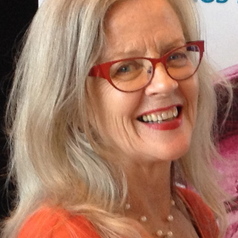 A scholar of international repute, Professor Anna Haebich is known for her multi-disciplinary and cross-cultural approaches and is recognised as one of the leading historians on the Indigenous history in Australian settler history. Her research interests include Indigenous history, Indigenous art, contemporary visual arts, museology, and social justice issues. Anna brings to her research her personal experiences of Aboriginal community life through marriage and work.
A scholar of international repute, Professor Anna Haebich is known for her multi-disciplinary and cross-cultural approaches and is recognised as one of the leading historians on the Indigenous history in Australian settler history. Her research interests include Indigenous history, Indigenous art, contemporary visual arts, museology, and social justice issues. Anna brings to her research her personal experiences of Aboriginal community life through marriage and work.
She is currently a John Curtin Distinguished Professor at Curtin University. Previously, she was a Research Intensive Professor, and the foundation Director of the Centre for Public Culture and Ideas at Griffith University, and held the Orbicom UNESCO Chair.
Her career combines university teaching and research with museum curatorship, visual art practice and working with Indigenous organisations. Her multi-award-winning book, Broken Circles: Fragmenting Indigenous Families 1800-2000 (2000), is Australia’s first national history of the Stolen Generations, and For Their Own Good: Aborigines and Government in the South West of Western Australia (1992) is a seminal work on the impact of Australia’s discriminatory policies and laws.
She is a Fellow of two Australian learned academies and member of university centres in Australia and Germany.
Explore some of Professor Anna Haebich’s work:
- Dancing in the Shadows Histories of Nyungar Performance, UWA Press, 2018.
- Take karaoke to Noongar country and you get… Noongaroke, The Conversation, 2014.
Mr Colin Steele AM FAHA
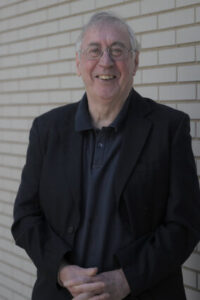 Colin Steele has made a distinguished contribution to librarianship in Australia and internationally. Citing a love of books, reading and book collecting from an early age, Colin obtained a master’s degree in library and information studies where he analysed seventeenth and eighteenth century English translations of Spanish and Portuguese books. After holding positions at the Bodleian Library at the University of Oxford, Colin moved to Australia, and from 1976 to 2002 he was the Deputy Librarian and then University Librarian at the Australian National University.
Colin Steele has made a distinguished contribution to librarianship in Australia and internationally. Citing a love of books, reading and book collecting from an early age, Colin obtained a master’s degree in library and information studies where he analysed seventeenth and eighteenth century English translations of Spanish and Portuguese books. After holding positions at the Bodleian Library at the University of Oxford, Colin moved to Australia, and from 1976 to 2002 he was the Deputy Librarian and then University Librarian at the Australian National University.
During Colin’s librarianship, the ANU collection reached one and then two million books, both occasions being marked by a ceremony with the respective Governors Generals, Sir Zelman Cowen and Sir William Deane. The library was awarded the national VALA for innovation in computing and networking in 1994.
Colin has written or edited seven publications and over 300 articles. He has been a regular reviewer for numerous journals and newspapers. Since 1987, he has convened the ANU/Canberra Times Meet the Author. Colin received the Knight Cross of Spain in 1984 for services to Hispanic culture and the Australian Centenary Medal in 2001. He is an Honorary Fellow of the Australian Academy of Humanities and University House, ANU and is a Fellow of both the Australian and British Library and Information Associations.
Learn more about Colin Steele’s work:
- The librarian whose Australia Day honour pairs nicely with his knighthood, The Canberra Times, January 2024.
We’re incredibly proud of their outstanding contributions and extend our warmest congratulations.


